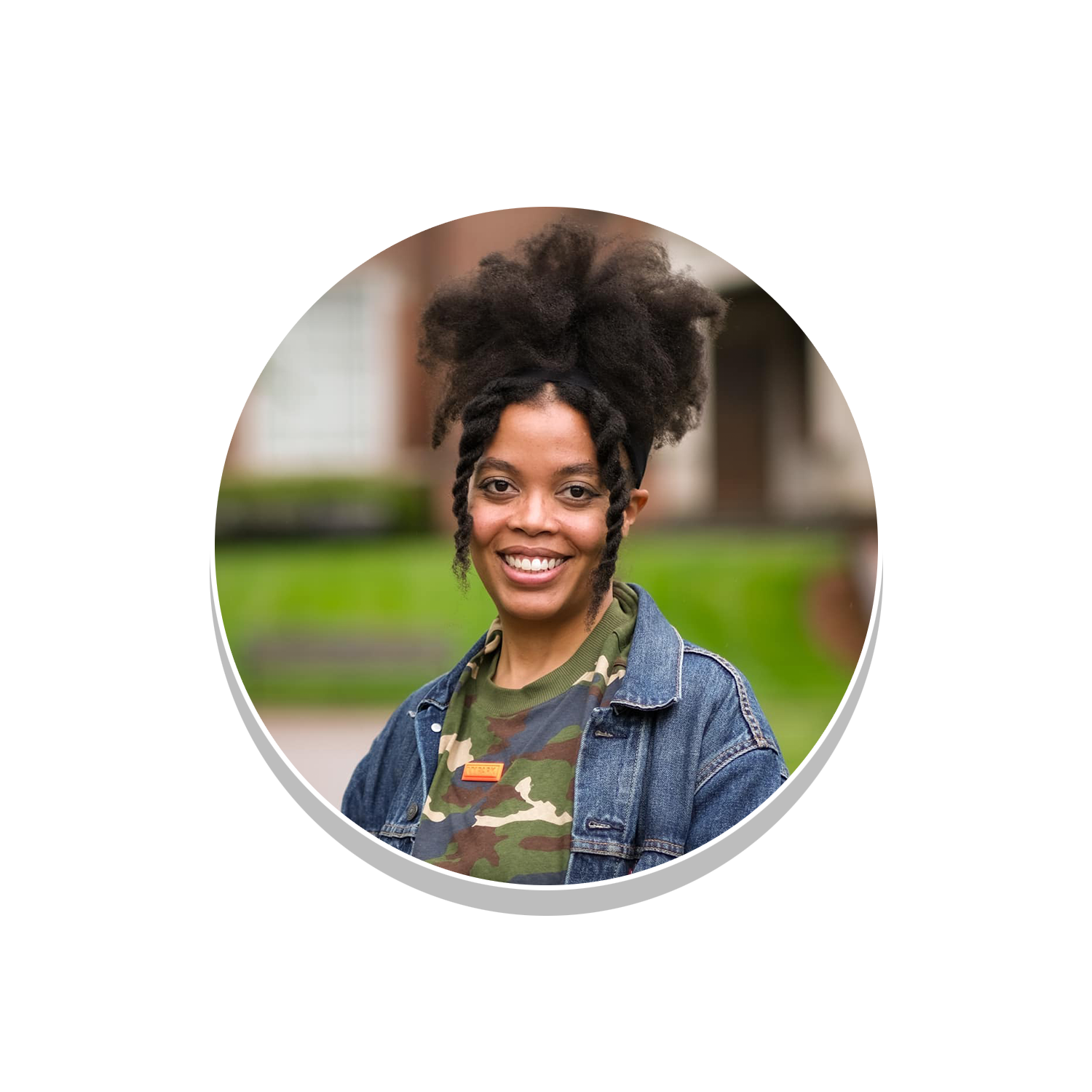I am Black. I am a woman. I am queer AND I am Christian. While I grew up in a Black Presbyterian church that felt affirming to all of my identities, I now know that Christianity is often the guise for much of the institutional and interpersonal violence that marginalized communities experience. Toxic theology has been the justification or at least the underpinning for horrid acts of violence throughout our histories- colonization, chattel slavery, lynchings, and rape culture. One of the results of this theology has been the stripping of women, trans men and non-binary people’s right to bodily autonomy, particularly seen in the countless murders of LQBTQIA people. There are those who swear falsely by the Lord’s name and declare that queer people and women living into our full humanity is the sin. They are complicit with this violence. There are those who preach hate, fear and punishment over love and mercy. They too, are complicit with this violence.
Zechariah 7 makes clear that what the Lord requires of us is to, ‘Administer true justice; show mercy and compassion to one another. 10 Do not oppress the widow or the fatherless, the foreigner or the poor. Do not plot evil against each other.’ The choice to ignore this command is what led and continues to lead the Lord to anger.
“But they refused to pay attention; stubbornly they turned their backs and covered their ears. 12 They made their hearts as hard as flint and would not listen to the law or to the words that the Lord Almighty had sent by the Spirit through the earlier prophets. So the Lord Almighty was very angry.”
Zechariah’s text shines light on the power of Bishop Yvette Flounder’s declaration, “Our duty is to do no harm. If that is not our first face duty, I will not harm you. If that is not first…any kind of evil is possible.” Zechariah’s Lord sets an expectation that all people; especially those different from or unknown to us, are to be loved, embraced, uplifted and cared for.
“It is not our differences that divide us. It is our inability to recognize, accept, and celebrate those differences.” – Audre Lorde
Yet here we are. The world has held on to the violent ways of their ancestors that caused the people of Israel to be exiled. The statistics are glaring. At least 38 trans people were fatally shot or killed in 2022.
A 2018 study found that, lesbian and gay youth who said that religion was important to them were 38 percent more likely to have had recent suicidal thoughts, compared to lesbian and gay youth who reported religion was less important. Religiosity among lesbians alone was linked to a 52 percent increased chance of recent suicidal ideation.
At least 417 anti-LGBTQ bills have been introduced in state legislatures across the United States since the start of the year — a new record, according to American Civil Liberties Union data as of April 3. That’s already more than twice the number of such bills introduced all of last year.
The overwhelming majority of the politicians moving these bills identify as Christians. The majority of people causing such harm to queer communities are doing so influenced by the oppressive, hetero-patriarchal ideology that the Christianity of some spews. Everyday, Black and queer people are navigating spaces where their humanity is in question and where safety is not guaranteed. The rage that I feel regarding the oppression of my people, I imagine, is the type of rage Zechariah’s Lord had towards the exiled. It must be the rage I feel when yet another Black person is killed by the police, or maybe more so the rage brought on by the apathy, dehumanization and ‘back to business as usual’ that takes place in the aftermath. Maybe it’s the rage I feel when mental health professionals and physicians question the parenting capabilities of my seven-month-old children’s gay fathers, or my decision to build a family with them. It must be the rage I feel knowing that I am raising Black babies, in a world that actively works against them and their queer family that the three of us have created with such intention and love.
“To be a Negro in this country and to be relatively conscious is to be in a rage, almost all the time. ”- James Baldwin
Zechariah calls attention to the promise of GOD, and the failures of God’s people in choosing who to listen to and who to ignore. The exiled revered corrupt politicians, built oppressive systems, destroyed that which resembled justice, and erased the truth by swearing falsely by the name of the Lord. Yet still, the prophet Zechariah exhibits the clear visions that we as queer people often have what is both necessary and possible when we return to the Lord’s teachings of compassion and justice and away from those of false prophets.
Return to me,’ declares the Lord Almighty, ‘and I will return to you,’
Zechariah’s text gives us permission to sit with the unpleasant and harmful aspects of our histories; while creating space to dream up what more is possible for our futures. The short yet complex text captures the essence of the very real and present acts of evil that queer people and otherwise marginalized people have experienced while still managing to actively practice faithfulness. Like Zechariah, throughout history it has been queer people who lead the way in forecasting visions of peace, building up our communities, fighting systemic oppression, operating from a framework of healing and liberation. While our stories are often erased and credit is often not given, like the prophet Zechariah’s contributions to the bible, the works of queer people are the foundation to liberation movements globally. The Black Lives Matter movement was conceptualized by three Black queer women. A gay man, Bayard Rustin, was one of the most trusted advisors of MLK Jr. Marsha P Johnson, a Black trans woman, was among those who led the way in the bold and explicit calls against state-sanctioned police violence against queer and Black people. Frida Kahlo, a bi-sexual Mexican artist, helped expand the notion of gender identity. Some of the most influential Black writers of the Harlem Renaissance and Civil Right movement, James Baldwin, Audre Lorde, Lorraine Hansbury, Langston Hughes were queer.
This is faith-work: to speak of and fight for a world yet seen, and still knowing it will be. Similar to Zechariah’s visions, they serve as a guidepost for what’s to come when we honor the charge of God. Zechariah 8:7 “I will save my people from the countries of the east and the west. 8 I will bring them back to live in Jerusalem; they will be my people, and I will be faithful and righteous to them as their God.”
We must acknowledge, learn from, and move away from the violent beliefs and practices of our ancestors that shun queer people and marginalize all those that are not white, cisgendered, heterosexual and/or male. We must recognize the role that theology has played in perpetuating the oppression of our people and do the work in unlearning those teachings. We must unclasp those harmful aspects of Christianity from our identity and set ourselves free to the inherently queer and liberating practice of Christianity. I believe Zechariah’s Lord is calling us to live as our full authentic selves- in all our queerness, our blackness, our womanhood and to righteously affirm others in doing the same. I believe the Lord is calling us to operate from a liberation framework, one that is inclusive, that does not cause harm, does not exclude or cast judgment and leads with compassion and mercy. It is then that we will all experience the full promise that Zechariah speaks of- the promise of peace, healing, of restoration and rebuilding of compassion, justice, mercy, prosperity, comfort and love.
Queer ass, Black ass, Dope ass love
Permits you, to love you, in ways the world tells you not to
Kisses your dimples, and breathes into every crevice of your shape
Emoting and awakening sensations latent beneath the surface
Persecuted love
Rejoices in the truths that we have shun away in the shadows. Protects.
Graces the tendermost spots of our hearts, heals the scars we kept in the dark.
It sees you…all of you…all of our…
Queer ass, Black ass, Dope ass love.
Gifts us with the heavenly tastes of freedom
Perseveres in the tests of times- defines
Power that horrifies them
Be like, think like, look like…lies of oppression
Our love needs no validation
They, she, ze, he, we
love freely
Embracing the fluidity of our being,
Prophetic love, hopeful love, divine, patient, kind…
Queer ass, Black ass, Dope ass love
without envy, without pride,
Beyond the pleasure of our flesh
Our souls are tied, despite efforts to deny
We love regardless, Love out loud, love from a distance,
Love in hate and in rage and in fear,
Love simply
Queer ass, Black ass, Dope ass love
Your existence is resistance

Deacon Samantha Paige Davis (she/they) is a native of Pittsburgh, PA. She grew up in Grace Memorial Presbyterian Church. She serves as the Associate of Gender, Racial and Intercultural Justice. She is a Black Feminist, organizer, policy wonk, and story teller working through an anti-oppressive framework. Samantha is a graduate of American University and the Founder and Executive Director of the Black Swan Academy in Washington D.C. which fosters the development of Black Youth Leaders. She has previously served on national committees within the Presbyterian Church USA: Black Women and Girls Advocacy Task Force and the Self Development of People. Her past work experience includes YWCA USA, the Urban League and local advocacy coalitions. She has been recognized by Essence Magazine’s 2019 Woke 100 as a change agent and power player.



Unbound Social